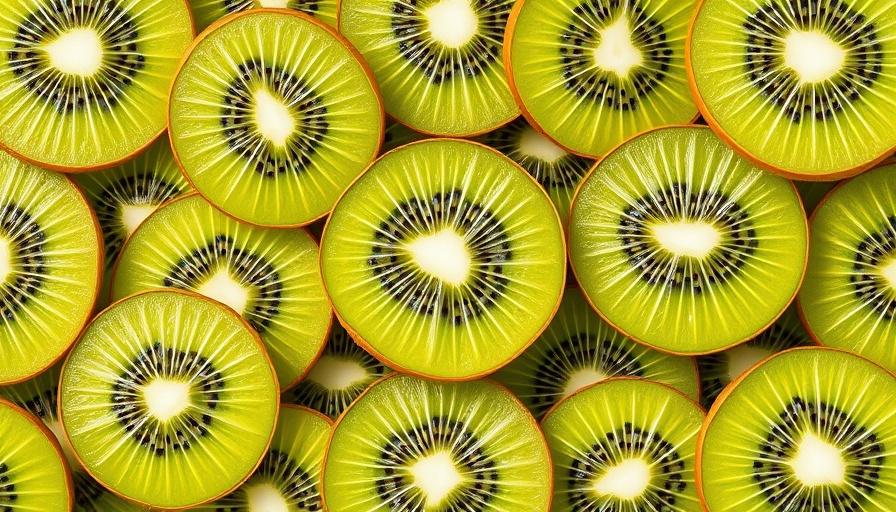
Unlocking Gut Health: The Surprising Foods That Can Help You Poop
For many, the discomfort of constipation is an unwelcome reality. The typical remedies—ramping up fiber intake and consuming more fluids—can sometimes fall short. But recent research from the Journal of Human Nutrition and Dietetics provides fresh insights into dietary choices that genuinely support digestive health. The findings are particularly beneficial not just for those experiencing chronic constipation but for anyone looking to optimize their gut function.
The Power of Kiwi: A Natural Constipation Remedy
At the forefront of this research is the unassuming kiwi. Bursting with soluble and insoluble fiber, kiwi not only softens stool but also adds bulk, improving colonic transit time. Gastroenterologist Jeremy Polman, DO, highlights its dual benefits: “Kiwis help alleviate constipation because they absorb water and keep your gut moving.” But what sets kiwi apart is an enzyme called actinidin. This enzyme enhances bowel motility, making it easier to pass stool. For maximum benefits, consider consuming kiwi with the skin on, as a significant amount of its fiber resides there.
Rye Bread: The Fermentable Fiber Champion
Next up is rye bread, a fiber-rich option that outperforms its wheat counterpart when it comes to digestion. According to nutrition expert Scott Keatley, RD, rye bread is not only packed with fermentable fibers that draw water into your stool but also nourishes gut bacteria to produce short-chain fatty acids like butyrate—which stimulate bowel movements. “Compared to wheat bread, rye leads to quicker intestinal transit and more effective stool consistency,” says Keatley. This simple swap at breakfast may significantly affect your days ahead.
Hydration with a Twist: Choosing the Right Mineral Water
Perhaps surprisingly, a specific category of beverage—high mineral content water—can also aid in alleviating constipation. Keatley mentions that waters boasting magnesium sulfate or bicarbonate exhibit natural laxative effects. Magnesium draws water into the intestines, which not only softens the stool but also promotes movement. “These waters can be a gentle alternative to stimulant laxatives,” he states, making hydration a pivotal player in digestive wellness. Consider reaching for a bottle of mineral water instead of traditional tap water during meals.
Why Understanding These Foods Matters
With this newfound knowledge, the question arises: why is understanding these foods crucial? Constipation can severely impact one's quality of life, affecting everything from energy levels to psychological well-being. The foods identified in this study not only boost gastrointestinal function but also serve as proactive measures in preventing chronic constipation from disrupting daily routines and overall health.
Behavioral Changes: Implementing Findings for Optimal Health
Incorporating these food items into your diet requires intentionality. Regularly including kiwi, rye bread, and the right mineral water can lead to more consistent digestive health. If you’re accustomed to handling constipation with over-the-counter solutions, consider discussing an informed dietary strategy with your healthcare provider. This knowledge empowers you to take control of your health and adopt a lifestyle conducive to wellness.
Emma's Journey: A Real-Life Example
Consider Emma, a 35-year-old working professional who often felt lethargic due to her struggles with constipation. Seeking alternatives to laxatives, Emma took to incorporating more kiwi and rye bread into her diet. Within a few weeks, she noticed significant changes, feeling lighter and more energetic. Emma’s experience serves as a reminder of the potential benefits a thoughtfully curated diet can bring to one’s everyday life.
Final Thoughts: Your Path to Better Digestive Health
The insights derived from recent research shed light on how specific dietary choices can alleviate constipation and enhance gut health. Incorporating kiwi, rye bread, and high mineral water into your meals not only brings variety but can fundamentally change your digestive experience. Embrace these changes and embark on a journey to optimal gut health!
 Add Element
Add Element  Add Row
Add Row 




Write A Comment